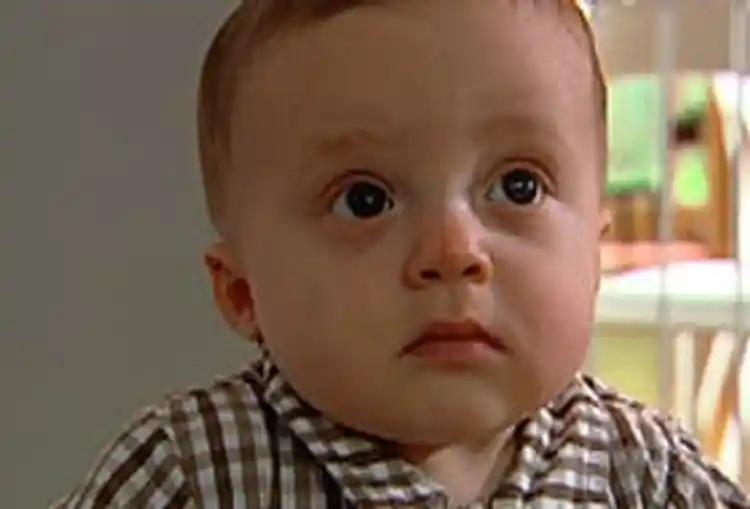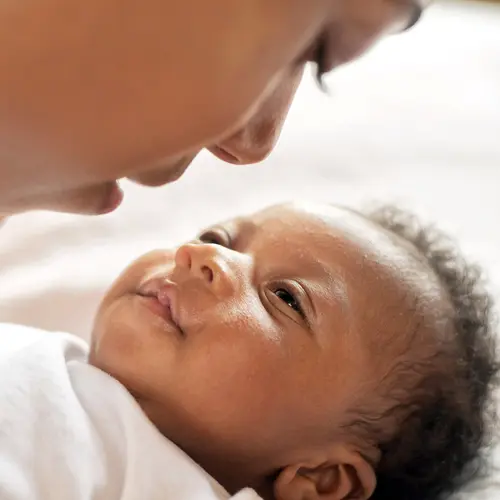Babies and Germs

Hide Video Transcript
Video Transcript
Narrator
Leif and Sam Bretan are 10 month-old bouncing twin boys. The babies are generally happy and healthy and their mom Robin would like to keep it that way. WebMD arranged to have Renee Watson, a registered nurse and infectious disease expert from Children's Healthcare of Atlanta, visit Robin and her boys to offer a few tips about keeping them safe from germs… Renee Watson, RN, CIC, Manager, Infection Control and Occupational Health
You use this for comfort. It might not be the best choice from an infection standpoint Narrator
A mess on a hard surface is easier to spot, so fabrics tend to harbor germs more readily… Harley A. Rotbart, MD, Professor and Vice Chairman of Pediatrics
I'm the doctor. Narrator
Author and germ expert, Dr. Harley Rotbart of the Children's Hospital of Denver says parents should be educated about germ flash points … Harley A. Rotbart, MD, Professor and Vice Chairman of Pediatrics
Once babies get to be six month of age, all heck breaks loose as far as germs are concerned. Narrator
That's because younger, but otherwise healthy babies tend to carry immunities from their mothers. Protection that starts to wear off at around six months. Harley A. Rotbart, MD, Professor and Vice Chairman of Pediatrics
The average number of cold, flu, and fever illnesses that a child will get in the first year or two of life is somewhere between 8 and 12 a year… Narrator
And that's not all bad as most are mild and help to build up a child's immune system. Renee Watson, RN, CIC, Manager, Infection Control and Occupational Health
You're not going to make a sterile environment at home. There's only one place in the hospital where we can make a sterile environment and that's in the operating room. Robin Bretan, Mother of twin boys
Sam this morning woke up with a runny nose and I always worry about both of them catching what everyone has. Renee Watson, RN, CIC, Manager, Infection Control and Occupational Health
When you're talking about more severe infections perhaps, strep throat and things, you definitely want to keep them as separate as possible. Narrator
There are things you can do to lower the odds of inviting more chronic or severe infections into your home. Harley A. Rotbart, MD, Professor and Vice Chairman of Pediatrics
Once the baby starts getting mobile and they can start crawling, then germs on the floor and germs on surfaces that they can pick themselves up on, become more important that's when household cleaning regiments are particularly important. That's when you need to start disinfecting. Disinfecting should contain bleach, ammonia works; there are certain alcohol and phenyl compounds that work. But my preferred disinfectant is a disinfectant that contains bleach, because bleach is effective against both bacteria and against viruses. Narrator
Keeping a healthy home starts by keeping infectious germs from spreading. Toys and personal items that have come in contact with a sick child should not be shared and should be washed in hot soapy water or put in the dishwasher. And frequent hand washing is always encouraged for parents with infants—especially after contact with someone who's sick, a diaper changing and always before and after preparing food. One of the most effective ways to keep your baby away from harmful infections is to build up their immune system. That's why healthcare professionals like Renee strongly urge parents to make sure their little ones have all their recommended shots by the time they're a year old. Renee Watson, RN, CIC, Manager, Infection Control and Occupational Health
We're a much more healthy community because of vaccines. Narrator
For WebMD, I'm Damon Meharg 
